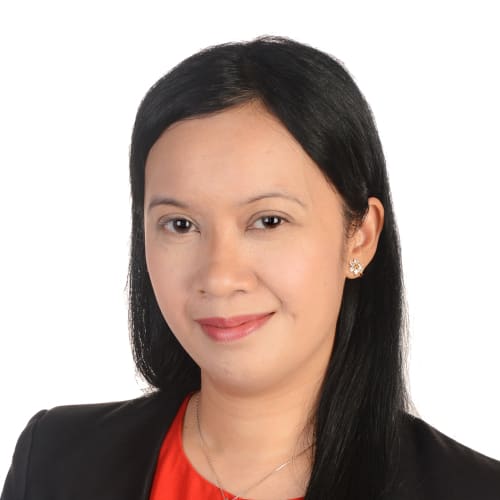Indonesia’s new era: How different will Prabowo’s economic policies be compared to Jokowi’s?
In the second of a three-part series on Mr Prabowo Subianto’s upcoming presidency, CNA travels across Indonesia and examines how he will lead Southeast Asia’s biggest economy.
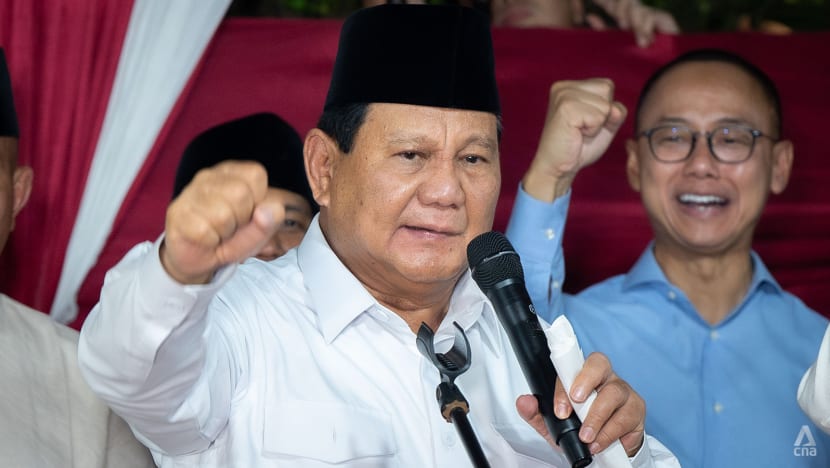
Indonesian Defence Minister Prabowo Subianto in Jakarta on Mar 20, 2024, after the country's election commission declared him as the winner of the 2024 presidential election. (Photo: CNA/Danang Wisanggeni)

This audio is generated by an AI tool.
NUSANTARA, Indonesia: Upon hearing that businesses at a traditional market in Indonesia’s planned new capital Nusantara were thriving, Madam Anisah decided to move her family there in order to improve their fortunes.
The mother of seven packed the family home and hauled her children some 450km from Banjar regency in South Kalimantan to the Sepaku district in East Kalimantan to open up a small grocery shop.
That was two years ago, and now, the 50-year-old told CNA that she earns about 10 million rupiah (US$654) daily from selling groceries.
This, she said, was a significant increase from her previous income of less than 5 million rupiah a day when she was back in Banjar.
Mdm Anisah’s move to Nusantara improved her family’s livelihoods and she hopes that the administration of incoming President Prabowo Subianto will continue with the megaproject.
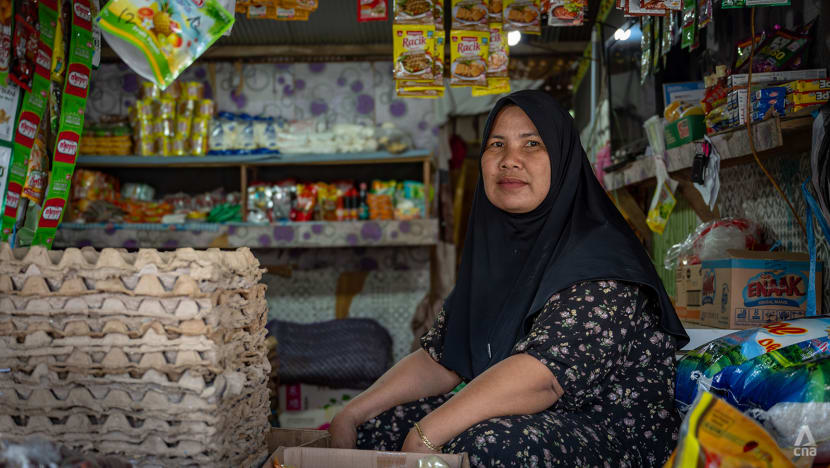
Mr Prabowo is set to be inaugurated as Indonesia’s eighth president on Sunday (Oct 20), taking over the reins of Southeast Asia’s largest economy from Mr Joko Widodo.
“Continue it. So the economy will be a bit advanced. My business will also be successful,” said Mdm Anisah, who like many Indonesians, goes by one name.
The US$30 billion Nusantara project - also known as Ibu Kota Nusantara or IKN - is widely considered as Mr Widodo’s legacy.
Jokowi, as the outgoing president is popularly known, has primarily focused on building infrastructure projects across the archipelago during his 10 years in office. But he also pushed for the domestic processing of Indonesia’s raw minerals until they became ready-to-use products.
This downstream industry was often regarded as a form of protectionism, which is how homegrown businessman Jokowi did business with other countries.
With Mr Prabowo previously pledging to continue with his predecessor’s programmes, CNA takes a look at how the incoming president would grow Indonesia’s economy in areas such as infrastructure, the downstream industry as well as cooperation with other countries and whether he will hit his ambitious target of 8 per cent annual economic growth during his presidency.
INFRASTRUCTURE PROJECTS LESS OF A FOCUS
While Mr Prabowo has pledged to continue with Mr Widodo’s programmes, analysts whom CNA spoke to said that the incoming president may have a different focus when it comes to major infrastructure projects as compared to his predecessor.
Mr Widodo has developed 521 infrastructure projects in the past 10 years, according to the transport ministry, which is why many see him as the man of infrastructure.
And since he took office in 2014, some 27 new airports have been built, and 55 railway lines have been constructed.
At the end of his first term as president in August 2019, Mr Widodo announced that the capital would move from sinking, polluted Jakarta to eastern Kalimantan by 2024.
But the government had to put a pause on the new capital project when Indonesia - like the rest of the world - was hit by the COVID-19 pandemic in early 2020.
Construction of Nusantara began only in the second half of 2022 when the pandemic began to ease. Meanwhile, Jakarta remains the capital of Indonesia as Nusantara is not yet ready.
So, what could be the fate of the new capital once four-star general Prabowo takes power?
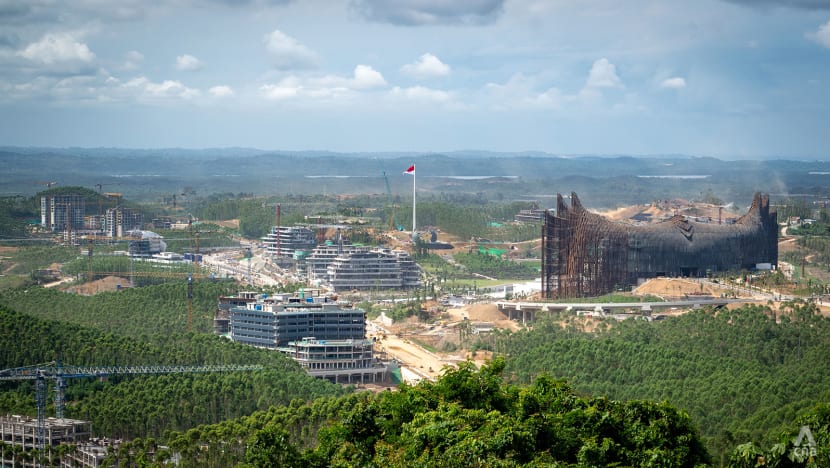
Mr Andry Satrio Nugroho, an economist from the Institute for Development of Economics and Finance (INDEF), believes that Mr Prabowo would not be too focused on its development as compared to Mr Widodo.
“Mr Prabowo perhaps does not want the state budget to be burdened by IKN. We know that only 15 trillion rupiah is allocated from the 2025 budget for it (next year),” said Mr Andry, pointing out the sharp decrease from this year’s state budget, where the government has allocated 44 trillion rupiah for the development of the new capital.
“And this is a sign that Mr Prabowo won’t focus on it (Nusantara).”
Separately, Mr Widodo in 2023 launched Whoosh, Southeast Asia’s first high-speed rail connecting the cities of Jakarta and Bandung. The up-and-running rail link is part of China’s landmark Belt and Road Initiative (BRI) in Indonesia to connect Asia, Africa, and Europe through land and maritime networks to increase economic growth.
There have also been discussions to expand the Jakarta-Bandung high-speed rail to the country’s second-biggest city, Surabaya, to add more passengers and increase profitability.
And while Mr Andry thinks the project will be executed, whether the expansion will involve fully high-speed or semi-high-speed trains remains to be seen.
Previous estimates by the transport ministry in 2019 found that the expansion would cost about 60 trillion rupiah if semi-high-speed trains were used. But analysts had previously said in local reports that the project may cost four times more than the Jakarta-Bandung high-speed rail should high-speed trains be used.
“This will most likely be continued to work on as part of the BRI project,” said Mr Andry.
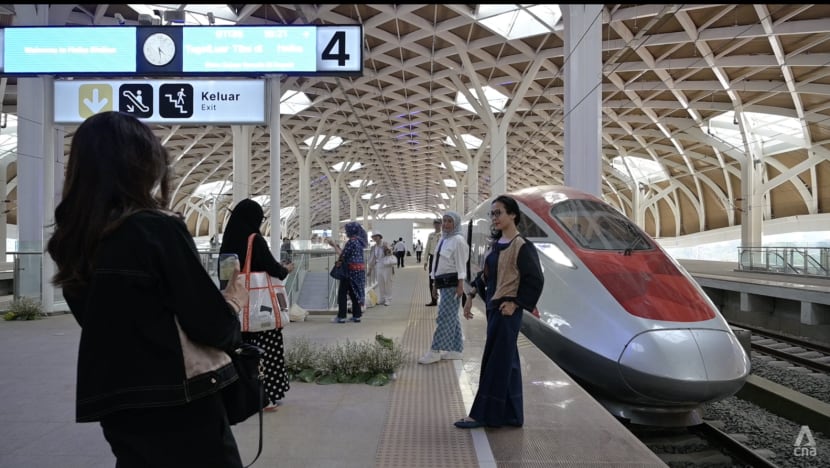
But Mr Andry opines that President-elect Prabowo would rather focus on building human capacity than infrastructure.
He would do this by implementing the free meal programme for students across the country, which was the main plank of his campaign when he ran for office and is believed to be his signature programme.
About 71 trillion rupiah has been allocated from the state budget for the programme next year.
Mr Prabowo has also set a target to build three million houses for the poor annually.
Both programmes aim to eradicate the factors that prevent human capital development in the country - namely stunting and a housing crisis. Stunting is the impaired growth and development that children experience from poor nutrition, repeated infection, and inadequate psychosocial stimulation.
Mr Prabowo’s younger brother Hashim Djojohadikusumo - who is also the incoming president’s trusted confidant - asserted his optimism that the next government can tackle the housing problem.
“Many people are sceptical, but I say we can do this. I have been to Beijing and Qatar and met with investors from China who are ready to help build houses for the poor,” said Mr Hashim on Sep 28.
“This is not only charity but also a profitable investment for our poor people,” he said when speaking at an event in Jakarta.
Many believe that Mr Hashim, a business tycoon and a member of Mr Prabowo’s Gerindra party, will play an instrumental role in the next administration.
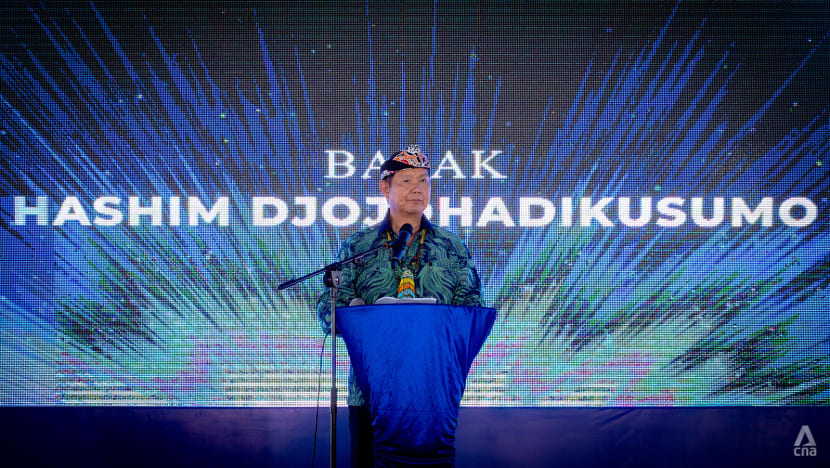
FROM DOWNSTREAMING MINERALS TO SECURING FOOD
While Mr Widodo over the years has focused on downstreaming the country’s mineral industries, analysts believe that Mr Prabowo will instead focus on the downstreaming of agricultural, fisheries and bioenergy products.
Downstreaming is when raw material is processed domestically until it becomes an end product.
For years, Indonesia - an archipelago rich in natural resources - was a mere exporter of raw materials and an importer of finished products.
Mr Widodo during his tenure changed this by growing the downstream industry to create higher-value products.
The main focus in the past few years has been to downstream nickel, given that Indonesia is the world’s largest nickel producer, with industrial hubs in Sulawesi and North Maluku. Nickel is a crucial component for electric vehicle (EV) batteries, and Indonesia wants to be a major player in the EV industry.
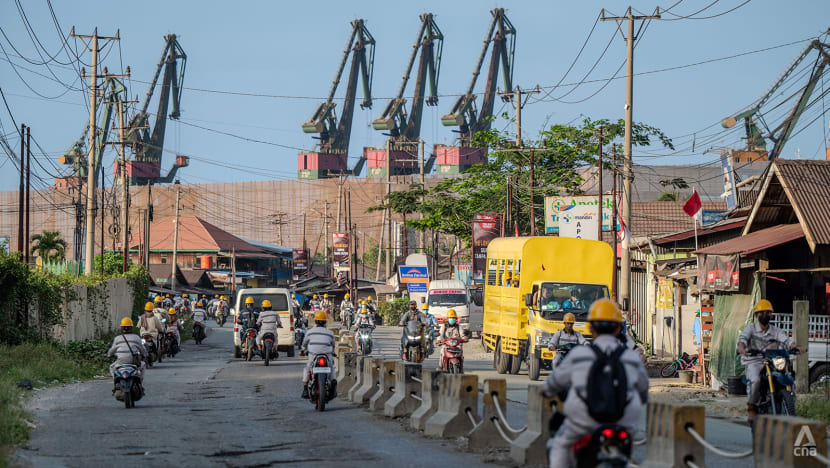
Mr Widodo had also hoped that other minerals - such as copper, bauxite, and tin - would also be developed locally into higher-value products.
When inaugurating a copper smelter in East Java on Sep 23, he said the next government would continue to downstream other minerals.
“Tomorrow, we will also inaugurate a smelter for bauxite that will produce aluminium in Mempawah, West Kalimantan. As for the others, the new government would definitely (inaugurate them),” said Mr Widodo.
CNA interviewed people on Bangka island, Sumatra, which is a main producer of tin. Tin is a crucial component for products such as mobile phones, and it has been reported that major firms such as Samsung and Apple may have gotten their tin from Bangka.
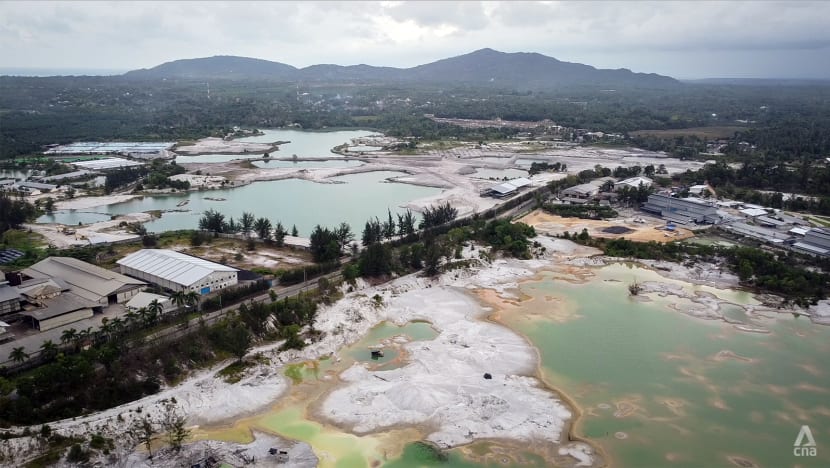
Mr Anggi Pratama, 20, an employee at a tin mining company in Sungailiat, Bangka, welcomes the downstreaming of tin.
“I agree with the downstreaming project because our country could develop further and perhaps create new jobs for the unemployed.
“It could reduce poverty,” said Mr Anggi, who has been working for PT Mitra Graha Raya for 18 months.
Shop owner Ajung in Sungailiat, who goes by one name, echoed similar views.
“I agree because if factories will be built here, it will grow the economy here and create jobs,” said Mr Ajung, 57.
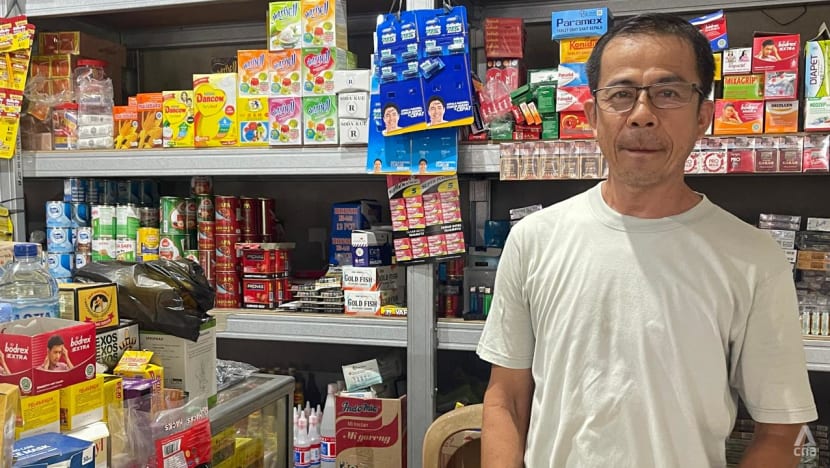
However, Mr Bhima Yudhistira, an economist from the Center of Economic and Law Studies (CELIOS), said that unlike Mr Widodo, the incoming president Mr Prabowo would likely focus on downstreaming agricultural, fisheries and bioenergy products.
“Mr Prabowo’s dream is to push for food independence and security,” said Mr Bhima, CELIOS’ executive director.
As defence minister, Mr Widodo tasked him, along with other ministers, with overseeing the food estates in Indonesia. Food estates are food plantations usually run by local farmers and funded by the government.
So, striving for food security would be a continuation of this.
“Because the focus is food security, Prabowo would be more like a protectionist handling food security, but he would be more outward-looking, attending more international forums, seeking more international cooperation when it comes to energy transitions,” said Mr Bhima.
Meanwhile, a farmer working on a food estate in Keerom regency, Papua told CNA she wants the next government to continue the programme.
"Yes, I want it to be continued and Mr Prabowo actually came here when we just started to plant the corns," said farmer Yubelina Abar.
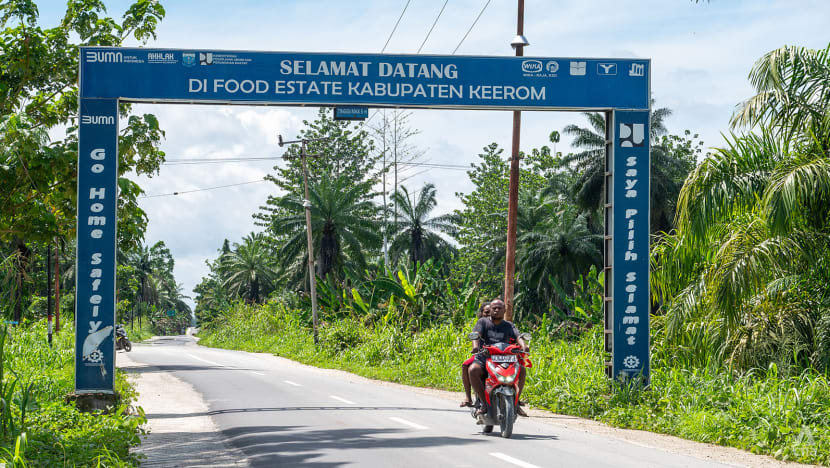
OUTWARD-LOOKING ECONOMIC COOPERATION
Meanwhile, analysts believe that compared to Mr Widodo - who is often regarded as an inward-looking president - Mr Prabowo will be widely open to collaborating with different countries in order to advance Indonesia’s economic interests.
Mr Andry - who is INDEF’s head of centre of industry, trade and investment - said China would be the leading economic partner, as indicated by Mr Prabowo’s first trip abroad to the country after winning the election.
However, Mr Bhima stated that Mr Prabowo would not just depend on China.
“He will be more open (than Jokowi) and not just depend on China because Prabowo has an international network, and it seems he likes to attend international forums, including with Middle Eastern countries and is close to Japan,” said Mr Bhima, adding that Mr Prabowo has a long relationship with leaders from those countries given his military background as well as having grown up in several places internationally.
Mr Bhima said that under Mr Prabowo, Indonesia would also continue to push for membership in the Organisation for Economic Co-operation and Development and perhaps even the BRICS group of emerging economies.
Mr Mohammad Faisal, executive director of Jakarta-based think tank Center of Reform on Economics (CORE) Indonesia said Mr Prabowo has a broader global insight and capacity than the outgoing president.
“Mr Prabowo will look at how Indonesia can play a role globally, not just economically but also geopolitically.”
WILL PRABOWO ACHIEVE THE 8 PER CENT GROWTH?
Ultimately, Mr Prabowo aims to achieve 8 per cent economic growth annually during his presidency. After all, Indonesia's most prominent target is to become a developed country by its centennial in 2045.
But analysts are cautious and warn that the target may be difficult to achieve.
Mr Mohammad Faisal from CORE Indonesia said it is a huge target.
“I think that would need extra, extra, extra effort,” said Mr Faisal.
Meanwhile, Mr Andry from INDEF said Mr Prabowo’s programmes must clearly outline how to achieve the eight per cent economic growth annually.
“Don’t let it become a utopian idea which is very difficult to achieve,” said Mr Andry.
Likewise, Mr Bhima from CELIOS said if Mr Prabowo were to achieve a 5 per cent growth rate - which is the current growth rate - it is already good enough given the current global situation, which includes wars in several countries and an economic slowdown in many others.
“It won’t hit 8 per cent soon, especially in the first year where there will be many adjustments and new people still trying to adapt to bureaucratic work,” said Mr Bhima.
And the analysts agree that who Mr Prabowo includes in his Cabinet line-up will be key to him achieving his goals, especially that of the finance minister portfolio.
Mr Prabowo’s nephew Thomas Djiwandono was inaugurated as deputy finance minister in July, and some believe he may be the next finance minister.
But Mr Andry from INDEF warned that the market may react negatively towards perceived signs of nepotism. Hence, Mr Prabowo is advised to prevent this.
“The fear is that it would be viewed as a non-independent move and is highly political.
“Political neutrality is needed in the finance minister,” Mr Andry said.
On Oct 14, President-elect Prabowo interviewed 49 ministerial candidates, including current Finance Minister Sri Mulyani Indrawati.
The 62-year-old former World Bank managing director told reporters afterwards that Mr Prabowo had asked her to serve again as the country's finance minister.
However, she did not indicate whether she would take up the post again.
And on Oct 15, Mr Prabowo interviewed potential deputy ministers - among them Mr Thomas Djiwandono - who told reporters that he was asked to help Mdm Sri Mulyani along with two other deputy ministers.
Mdm Hendri Saparini, founder of CORE Indonesia, believes that Indonesia does have the potential to grow big.
“Of course, it won’t grow 8 per cent in 2025 because it will grow gradually,” said Mdm Hendri, adding that Indonesia has the potential to develop several other underutilised sectors in order to hit Mr Prabowo’s target economic growth.
She noted that the country, for example, has about 40 types of mangoes, but they have yet to be developed into products other than mango juice.
“We have the potential to tap into the domestic and global market. But it depends on how we design the processing industry for those products by creating incentives for those who want to buy such products.
“If we do that, we will achieve that high growth,” she said.








